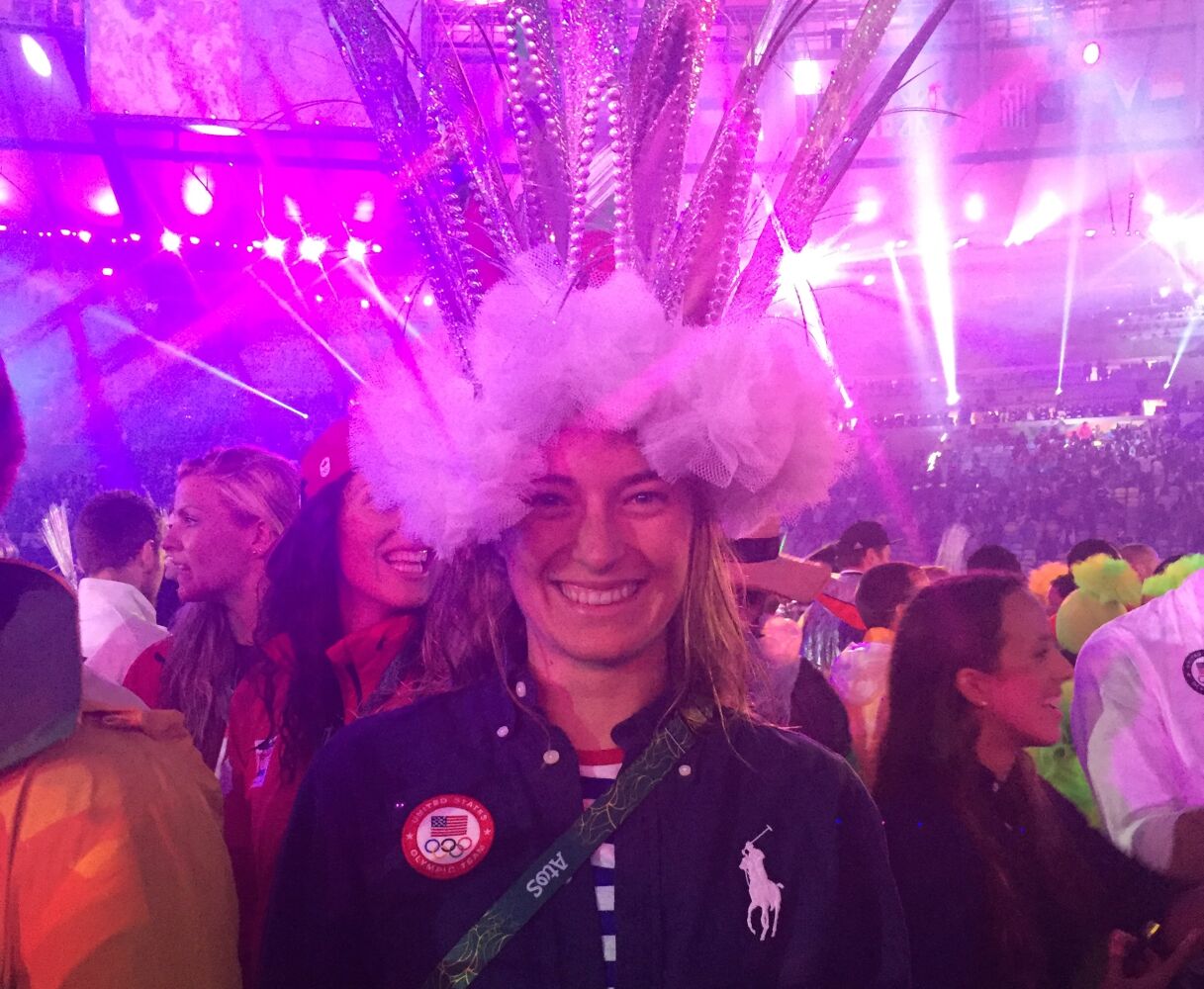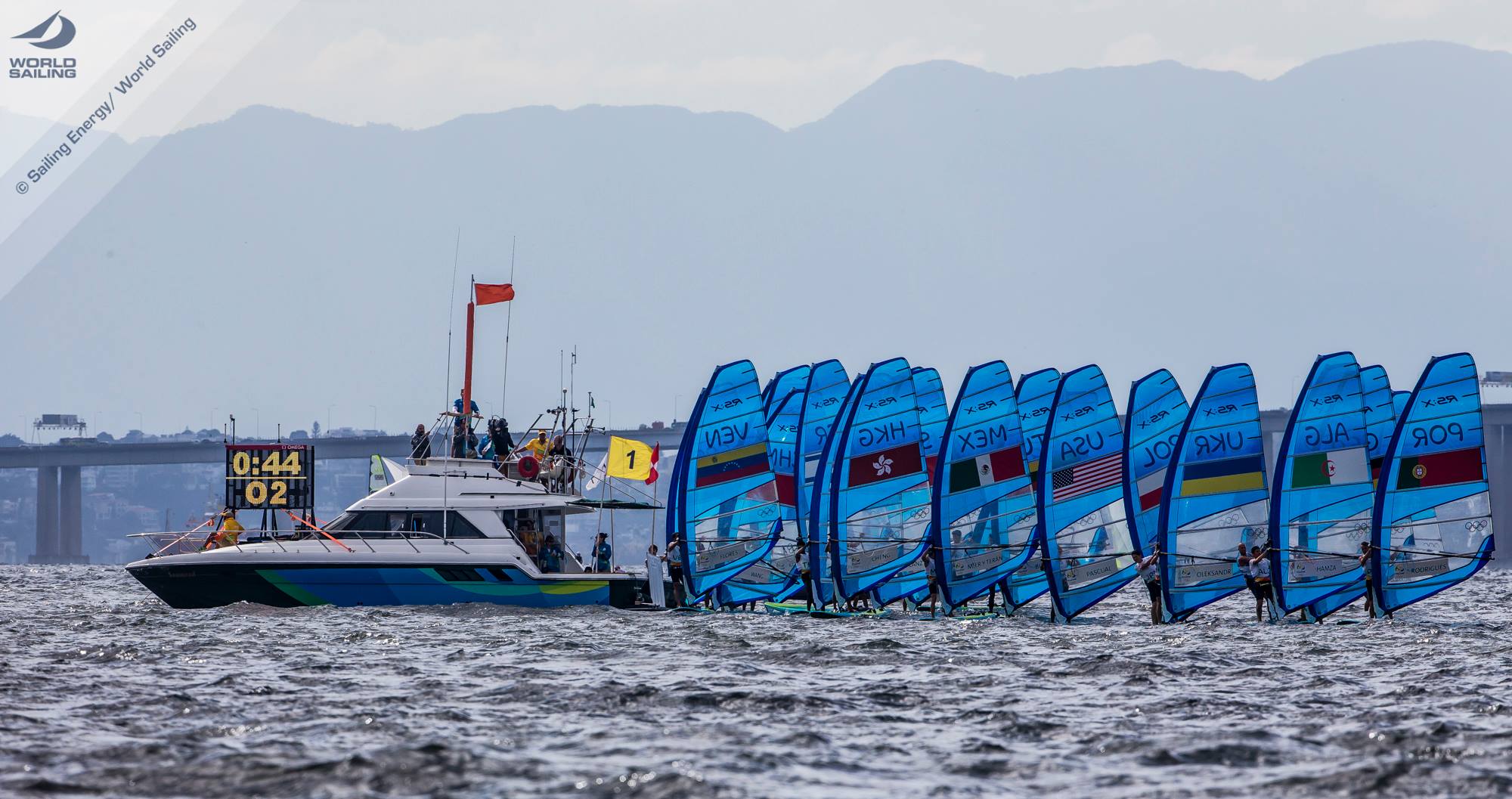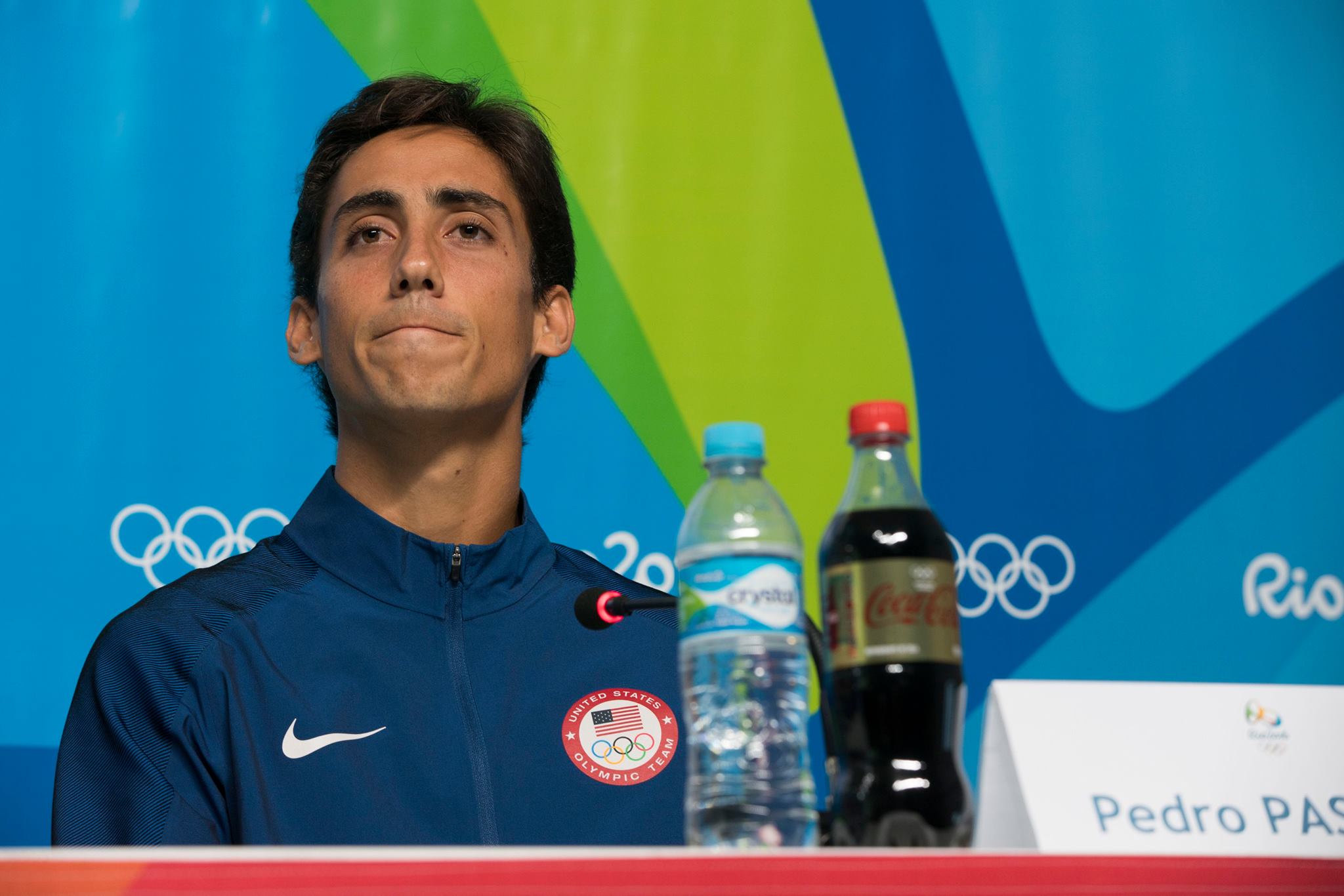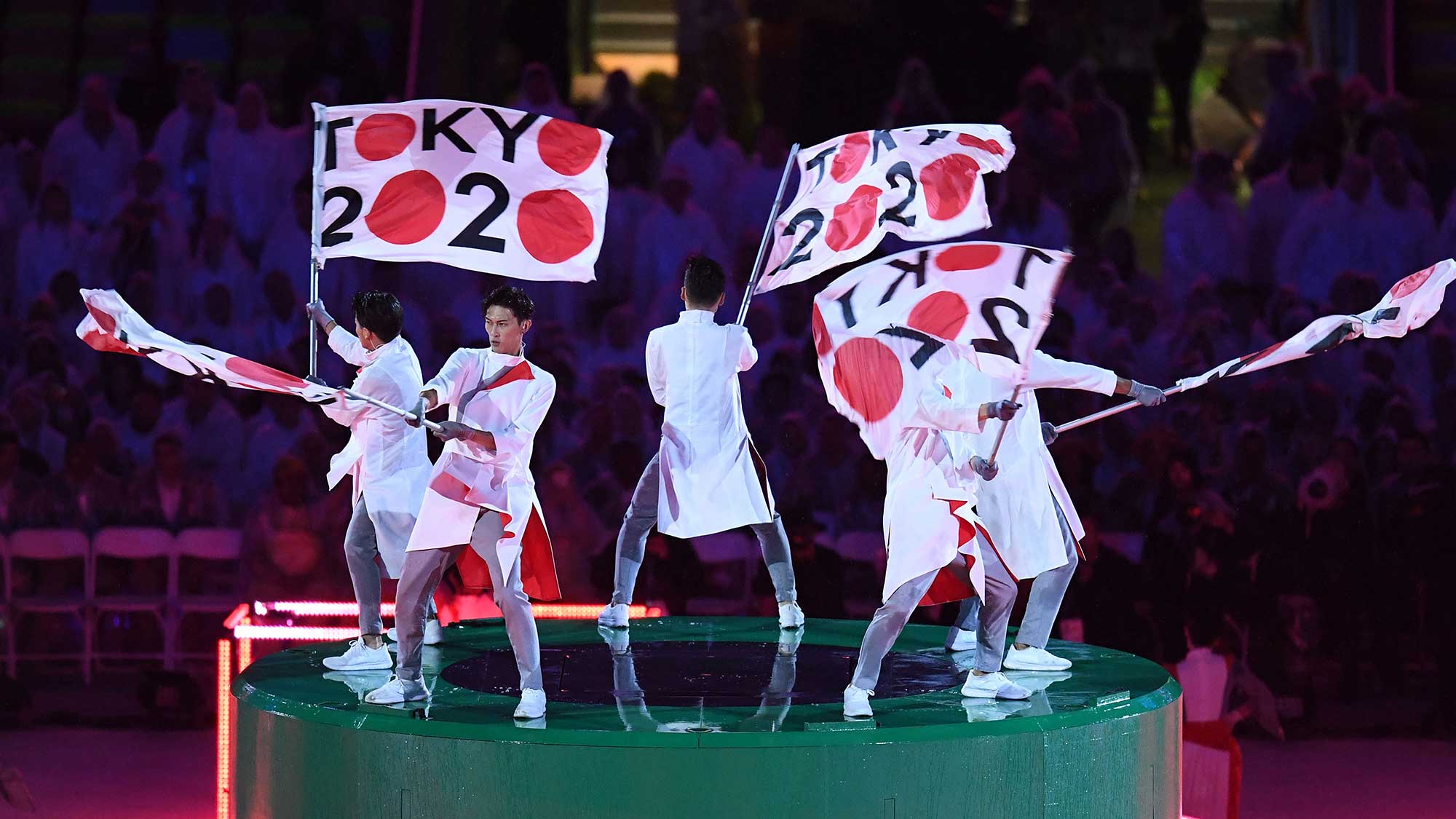Glitter in the eyes: a surreal experience in Rio!
It all happened so slow: training all the time, traveling everywhere, surviving the pressure of national team selection, raising funds, taking care of the gear, learning about the venues, keeping the coach happy, staying healthy, posting progress reports, raising more funds… four years’ worth of dreams (and heartaches, and sacrifices) to get ready for the ultimate stage. And then, one magical week later, it was all over. It all happened so fast!
The Rio Games concluded a few weeks ago already, but they’re etched in everyone’s memory. And they’ll be in the heart of those who were there for the rest of their lives. For our two windsurfing Olympians, Marion Lepert and Pedro Pascual, this was the experience of their young lives. They’re both 20 years old and have high hopes to compete again in Tokyo in four years’ time, but they sure made the most of their time in Rio, on and off the water. Back from Brazil, they had a few days before heading back to school, and we took the opportunity to check in with them and talk about that magical week in August.
US Windsurfing: On a scale of 1 (lame) to 10 (surreal), how was it?
Marion: surreal! I will remember this experience forever.
Pedro: 10!
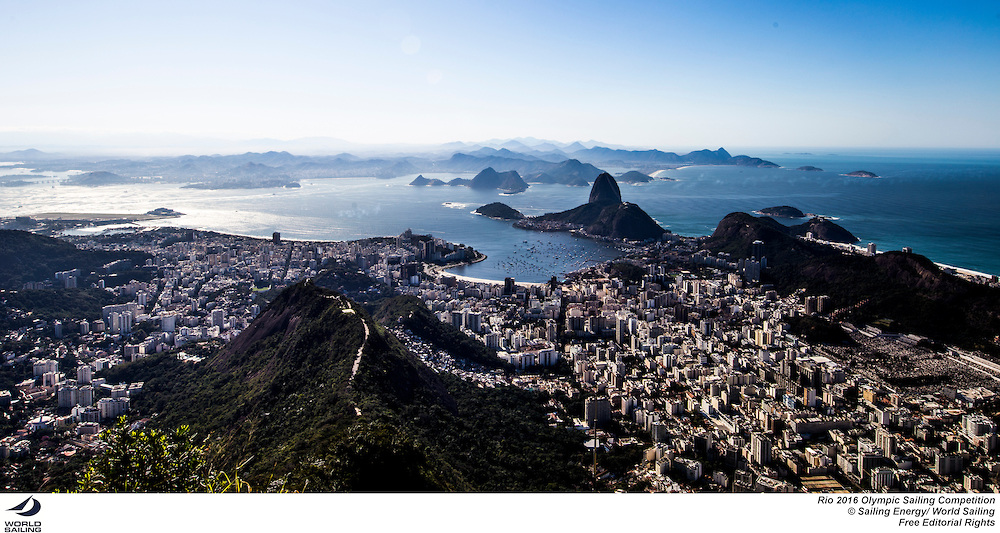
USW: What part of the Olympic experience did you like best?
Pedro: It is really difficult to choose a favorite part… I loved every part of it! My parents were there and loved every part of it too. They watched the sailing events from the beach and felt they were part of Team USA!
Marion: I liked the village and the competition the best. Bumping into all kinds of athletes in the village cafeteria was exciting and at times jaw dropping. I was really curious about what stories other athletes had, and I enjoyed my conversations with them a lot. I loved the racing because of the intensity with which people were racing and how challenging the racing venue was.
USW: These were your first Olympics. Do you feel that this put you at a disadvantage vs. fellow competitors who had been to the Games before?
Pedro:I did not really know what to expect from the whole experience and that may have been a disadvantage. Now I know what to expect and will probably do things different if there is a second time!
Marion: No, I think my disadvantage came from how much later I started my campaign compared to most of my competitors, rather than my lack of previous Games experience. I believe that the Olympics is just like any other regatta and that having a lot of experience racing at the top of the fleet is more important than having been to the Olympics.
USW: NeilPryde supplied new boards and rigs just for the Games. Was it hard to adapt to a new kit?
Pedro:The equipment was alright, it was definitely not as good as my own but it was the same for everyone, and it was hard for everyone to adapt.
Marion: The new Rio colors of the equipment were disorienting at first, especially the board because I was used to using the traditional colors as reference points, but I found that I adapted very quickly to them.
USW: Did you approach the racing differently than you would have at a regular regatta? Like, for instance, taking less risks early on, or more risk, or covering your competitors more than usual?
Pedro: I tried to do the same I always do, and I think it was the right way to approach it.
Marion: Not at all. I think that one of my advantages was that I did not have the same pressure as a lot of my competitors, so I was free to race as I normally would. I gave it my all in each race and treated each new race as a fresh start.
USW: A lot of fuss was made before the Games about trash in the water potentially getting in the way of fair racing. Was it a problem for you?
Pedro: It was not a problem for me, the water was cleaner than ever.
Marion: No, there wasn’t any trash on any of our racing venues. There had been a lot of it during training camps that I did in Rio leading up to the Games, but there was none of it during the Games.
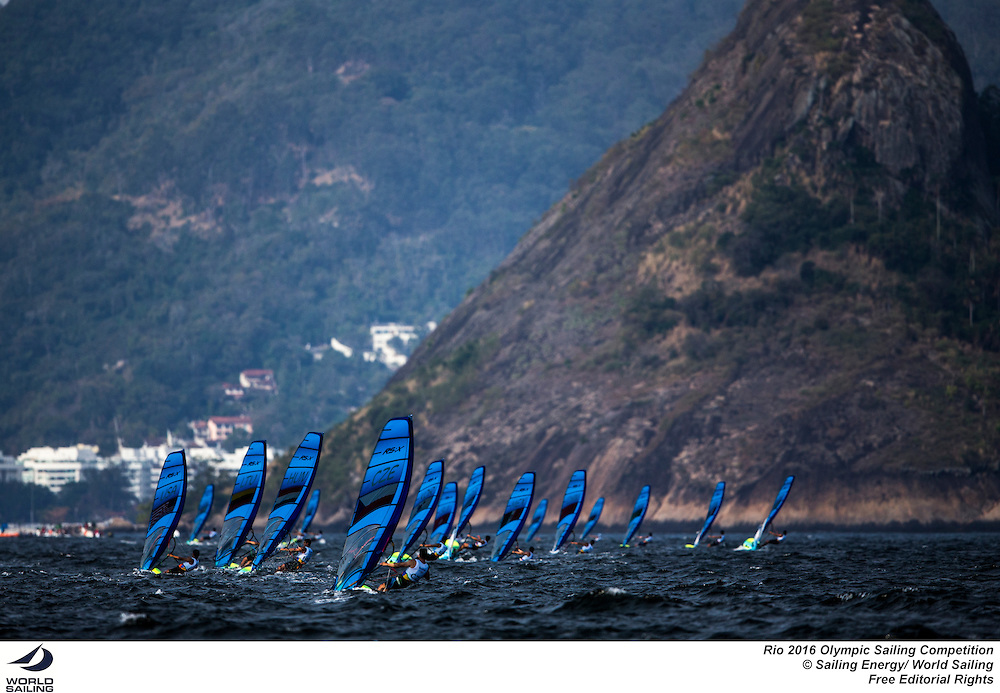
USW: The conditions turned out to be quite varied and unpredictable. Did you stick to the playbook or throw it away after a couple of days?
Pedro: We had a really good playbook but the conditions during the race turned out to be completely different to what we were used to. In the end, we just made decisions based on what we saw on the water.
Marion: The number one rule in our playbook was to be open-minded to anything happening on the water! There were a few races where the playbook came in handy and the high probability plays were obvious, but for most of our races, the wind was unpredictable and highly variant. It was common for the winning tracks in the men and women’s fleets to be on opposite sides of the race courses despite starting just ten minutes apart!
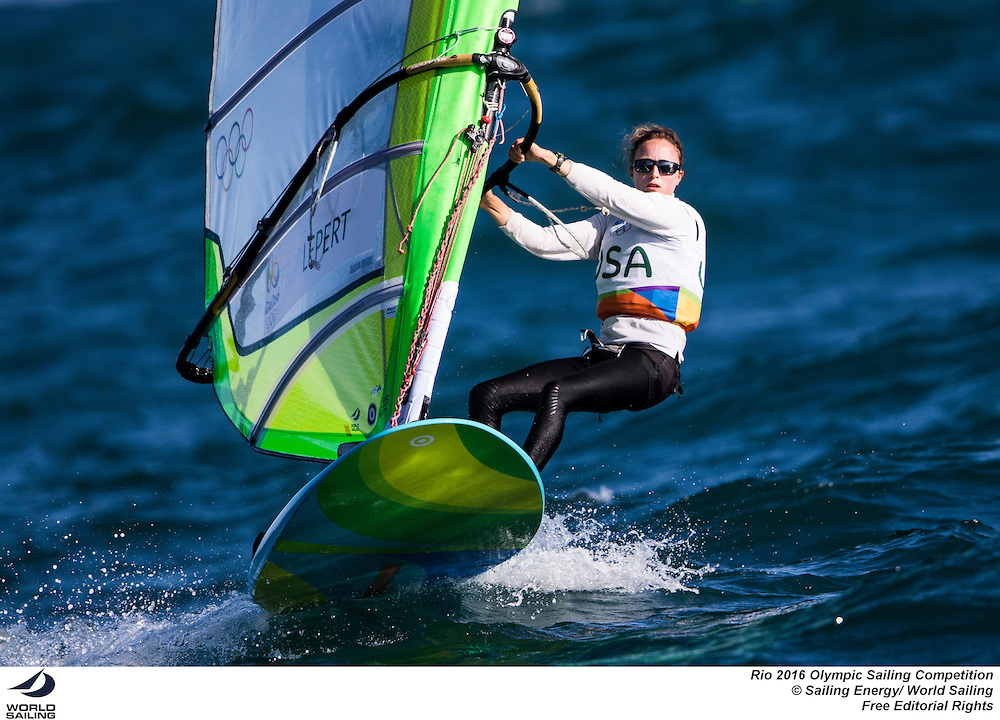
USW: You got to race on three very different course areas. Did it make it more exciting, or was it disorienting?
Pedro:We knew ahead of time that we were going to race on those three race areas, so we had done good training in all three before the event!
Marion: I found the daily change in course areas exciting because it forced us to adapt quickly to new scenarios, and it reshuffled the fleet a lot. It was definitely a challenge for me technically and tactically, but it made my Games experience that much more interesting.
USW: The organizers switched a course on you on the 3rd day of competition, racing you inside the bay in fluky wind instead of outside where it blew 25 kts with a 15-ft swell. When did you all learn about that change?
Pedro:We learned about the change the same morning. They made that decision and we had to adapt to it. It was not destabilizing, we just had to change our mindset before the race.
Marion: Looking back, I know that my regatta would have gone very differently had we been allowed to race outside that day because my specialty is 25kts with big waves, but I had already become very familiar with the disappointment of a race committee not allowing us to race in heavy air, and I changed my mindset immediately. I chose to race in the Olympics for the challenge, and the fluky winds we got on that day gave me a memorable one!
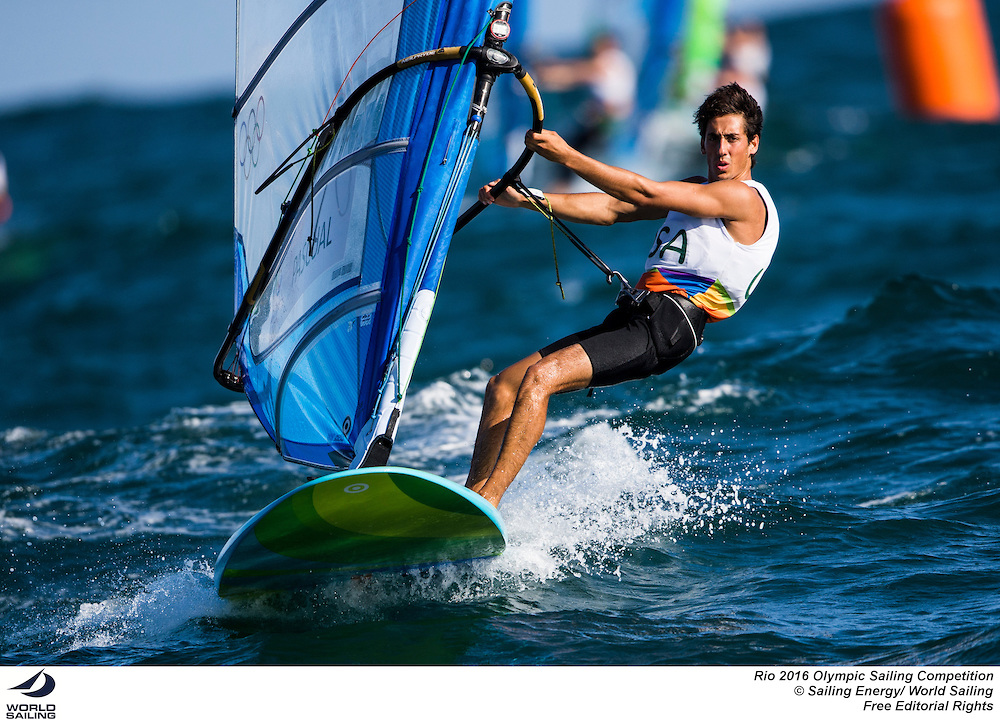
USW: Can you describe a moment in a race when you did something you’re particularly proud of? And a moment you’d rather forget?
Marion: I’m proudest of my 6th place finish on that fluky wind day inside the bay. Each race that day was a true roller coaster because of how variable the wind was, but I stayed in the wind really well during the entire race! On the other hand, I’m disappointed with my fall during the last race of the first day when I was in second place. I sailed just past a wind line because I was trying to avoid positioning myself in bad air for my next leg, but I didn’t anticipate how radical the wind drop was going to be, and I fell backwards with my sail on top of me!
USW: Who, among your fellow competitors, impressed you the most?
Pedro: I was especially impressed by the guy from Hong Kong, Michael Cheng. He made the top-10 and had some races in the top-3. He is just one or two years older than me and seeing someone that young fighting with the top guys encourages me to work harder!
Marion: I was impressed by the Chinese competitor in our fleet, Peina Chen. She had an incredibly powerful physique and a solid technique. I admired the way she pulled through at the end, despite having a bad start in the regatta.
USW: When you look across all sailing classes, what performance, in your mind, is the story of the Games?
Pedro: No doubt the story of the Games for me is the gold medal in the Nacra class by the Argentinians (Santiago Lange & Cecilia Carranza Saroli) – at 54 years of age and after fighting cancer! It is just incredible how a dream can become a reality with hard work and dedication.
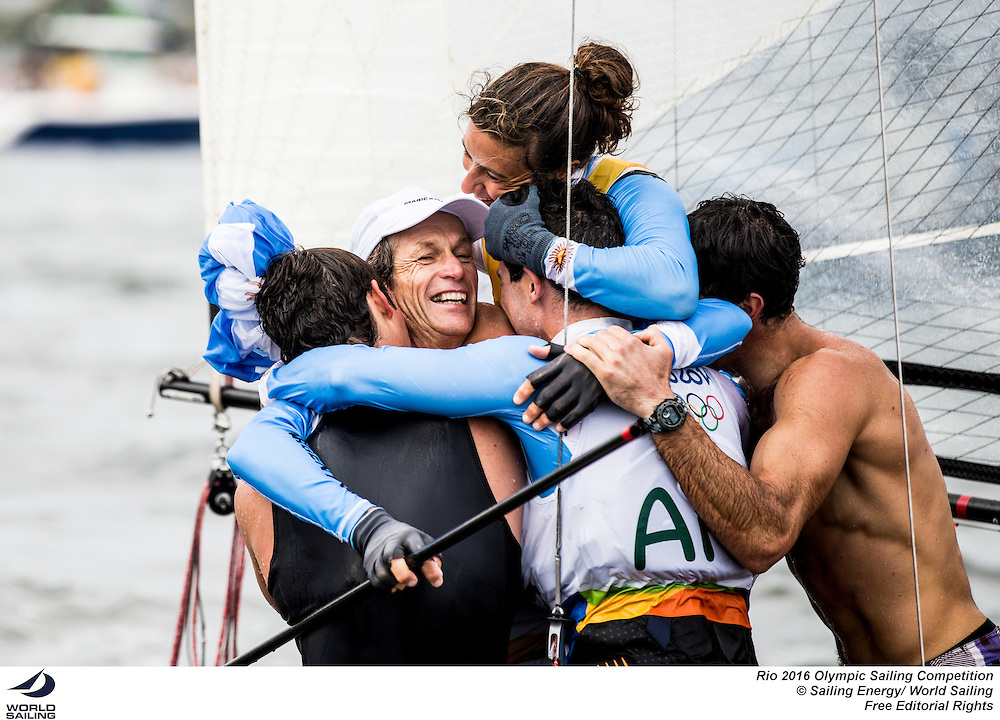
USW: How did you personally handle the media attention? Was it tiresome, or invigorating?
Marion: Something that was really important to me at the Olympics was not to let the “Olympics” hype of the event affect my performance at all. I chose to minimize my interactions with the media to prevent it from being a distraction, and our team communications manager, Will Ricketson, did a fantastic job in making it easy for me to fulfill my media duties without it having an impact on my racing.
Pedro: Media was OK for me. At first it was a bit frustrating that all the questions were about water quality instead of racing and the journey to get to the Olympics, but after the first few days, everything went back to normal and questions were focused on racing.
USW: Did you get a chance to stay for the closing ceremonies?
Marion: I actually preferred the closing ceremony to the opening one! All athletes walked as one unit rather than by country, and we got to be inside the stadium during the show. Despite the rain and ponchos we had to wear, there was a lot of positive energy amongst the athletes! The show was spectacular, and I especially enjoyed the Japanese choreography. I had a lot of fun at the end when we got to join the performers in the stadium to dance with them and try on their costumes!
Pedro: I stayed for the closing ceremonies as well, and I really enjoyed the Tokyo 2020 presentation too! It motivated me to keep working hard!
USW: What’s next for you?
Pedro:I will be going back to school and will keep training!
Marion: I’m headed back to Stanford in a few weeks to finish my undergraduate degree. I will be taking a break from the RS:X during the next few months to recharge and explore other opportunities at Stanford. When I feel ready, I’ll get back on the water to start training for Tokyo!
USW: Have you been on the water since you came back?
Pedro: Not yet! But I will be as soon as possible!
Marion: Yes, the San Francisco Bay is still by far my favorite place in the world, and I’ve been back on the water since the Games… But not on an RS:X!

